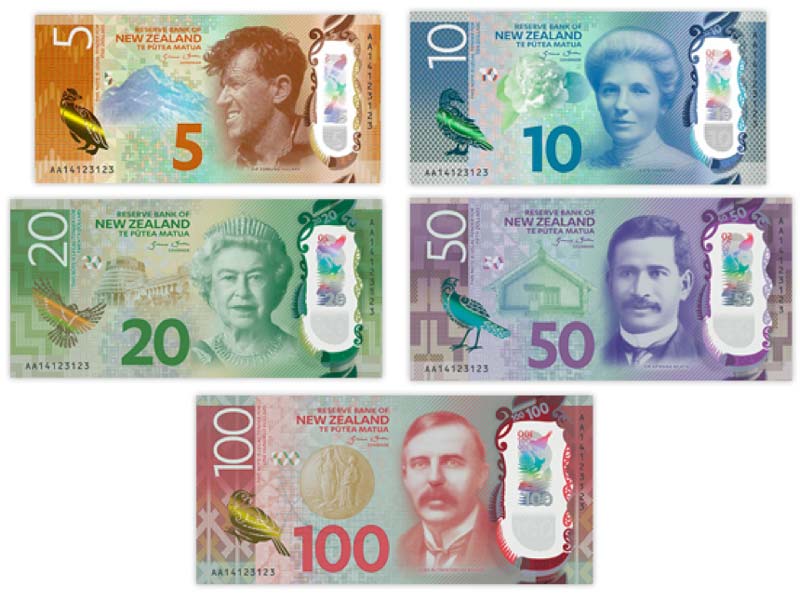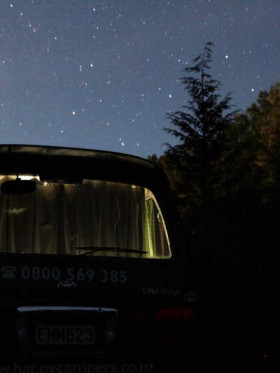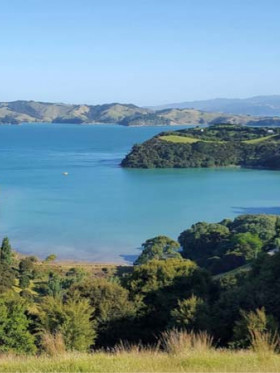So just how backward are the payment systems of tiny New Zealand? We pull back the curtain on whether cash is still in king in the world-wide number 1 country to take a campervan hire road trip. The results will surprise you.
All you need to know about NZ money matters
New Zealand may be a small little country tucked away at the bottom of the earth, but we are fairly advanced when it comes to matters of money. When you hire a campervan in New Zealand, it’s a good idea to make sure you are up to speed with how everything works, and that you’ll be able to access cash and make purchases while on your great road trip.
Let’s look at everything you need to know when it comes to spending your hard-earned cash on New Zealand shores.
First, is cash still king?
In a word – No.
Plastic is widely used everywhere for all sorts of purchases. However, it’s recommended to keep a small amount of cash on you for certain things, but I’ll explain more about that a bit later.
Understanding New Zealand Currency
The New Zealand Dollar is the nation’s currency, and we do not accept any other currency (it’s amazing how many people still believe we are part of Australia and therefore can use Australian dollars!).
We have the following denominations:
Coins: 10c, 20c, 50c, $1, $2
Notes: $5, $10, $20, $50, $100
 (courtesy of Reserve Bank of New Zealand)
(courtesy of Reserve Bank of New Zealand)
The great thing about NZ banknotes is that they are extremely hard to rip since they are made from plastic, and they survive if you happen to go for a swim with some in your pocket.
Since we no longer have 1c, 2c, or 5c pieces, we use Swedish Rounding when prices are not specified in 10c denominations. This means that if you buy some groceries that cost $23.34, the price will round down to $23.30 when paying by cash. Something that costs $23.38 will round up to $23.40. Retailers use their own discretion when prices end in 5 cents. When paying by card, Swedish Rounding does not take effect.
Cash on arrival
When you arrive in the country, one of the first things on your mind will be getting NZ dollars.
Exchanging foreign currency
You are allowed to bring as much cash as you like, but you will need to declare at the border any amounts over $10,000 NZD and provide proof of where the money came from.
You can exchange your foreign currency at a number of places including:
- Banks (accept all major currencies – but do check that yours is accepted first before bringing it). Banks are open between 9:30am and 4:30pm Monday to Friday
- NZ Post shops
- Bureau de Change kiosks (found at international airports and in city centres)
- Some hotels
You will be required to produce photo ID when buying New Zealand Dollars, whether you are using a card or exchanging foreign currency.
If you are stopped by immigration or customs when entering New Zealand, they may want to know how much cash you have to support yourself over the course of your stay.
Automatic Teller Machines (ATMs)
ATMs are easy to find in airports, towns, and cities – either outside a bank or supermarket, or on main shopping streets.
Make sure that your credit or debit card has a four-digit PIN and it shows one of the Visa, MasterCard, Maestro or Plus logo signs on the back.
Cash or Plastic for purchases?
Plastic is the preferred form of payment now in most kinds of businesses. But you do need to have the right kind of card that will be accepted in New Zealand.
Using cards
- Visa and Mastercard are the most widely accepted credit cards, and more and more places also take American Express, Diners Club, and Bankcard now too. If you are unsure, ask the business upon entering.
- As mentioned above, you’ll want to make sure that your card has a four-digit pin. New Zealand has adopted the smart chip-plus-PIN system for added security, so you may have some problems if you use a non-chip debit card.
- Advisable to have at least a couple of different cards, just in case you should have any problems.
- Almost every business you come across will have an EFTPOS machine. While it usually is common and widely accepted to pay any amount on your card, some small businesses like dairies (small supermarket/corner store) may impose a minimum amount of $5 or $10. Many places allow you to take a small amount of cash out in the same transaction as a purchase.

(courtesy of Eftco.co.nz)
**EFTPOS stands for Electronic Funds Transfer at Point of Sale. It’s the system that businesses in New Zealand use to accept payments by debit card or credit card.
- Many stores use payWave machines, so you can ‘tap-and-go’ with your payWave Visa or Mastercard debit card if you have one. Do note that some machines will require you to enter a PIN if the purchase is over a certain amount or possibly if you are buying alcohol.
- You may like to consider obtaining a travel card in your country that will allow you to keep NZD and withdraw with minimal or no ATM fees.
- It is common to find ‘card only’ cashiers at supermarkets, ticket offices, petrol stations, along with some other businesses. You’ll be able to see a sign clearly marking this before queuing.
- The costs of using your debit card or credit card will be according to your bank’s rates, but basic principles are relatively the same as in other countries. Credit cards are usually cheaper when using as cash compared to debit cards.
Using Cash
Even though paying by card is widely accepted and common even in small towns, there may be times when you do need to pay with cash. For example:
- Local bus fares
- Taxis
- Buying fruit and veges from roadside stalls
- Farmers markets or arts & crafts markets
- Small supplies in local stores for your campervan hire
It’s a good idea to keep some cash on you at all times for these purposes.
What are other options are there?
Travellers Cheques
Although not as common as what they used to be, travellers’ cheques are still accepted at some hotels and banks. These do cost more than using plastic though in terms of charges and conversion fees.
Apple Pay
Apple Pay does exist in New Zealand, however it’s not common practise yet. You may be able to use is at some nationwide franchises, but don’t count on this as your main payment source.
Local deposit debit card
There are currently no local deposit debit cards for tourists. It is not possible to open a bank account if you do not have a residency visa or citizenship.
Paying for your campervan rental
It’s likely that you would have paid for your campervan hire before you arrive in New Zealand, or you’ve paid for a portion and the rest will be upon pickup.
If you’ve chosen an insurance option for your motorhome that requires you to pay an excess should anything happen, the company will want this held as security before you drive your motorhome away.
So, what does this mean?
If you have an excess of $1000 and you hand over your debit card, the $1000 will be frozen in your account until after you return the campervan hire in as you took it. However, if you give your credit card, they may only take an imprint, and should insurance need to be claimed, they will then charge the card for the excess amount. However, be warned some of the bigger campervan hire companies in New Zealand will actually deduct the whole excess as a bond from your credit card. This means the money will sit with them for the duration of your rental and not with you. Be aware you may have transaction fees imposed by the campervan hire company for this as well as transactional fees charged by your own bank. Read the terms and conditions of your chosen campervan hire company before you actually book and pay a deposit and budget accordingly for your trip.
Paying for petrol

(courtesy of Pixabay)
When you are driving around in your campervan rental, you’ll no doubt be needing to fill up the petrol tank more than once for your road trip.
You’ll find different processes in terms of paying for petrol depending on which station you go to, and the time of day.
Some gas stations require you to prepay for your gas inside before pumping, while others will allow you to pump then pay. At night, and at some smaller stations, there will be a card machine connected to the pump for you to swipe your card before you can access the pump.
Tipping
Tipping is not common practise and is not expected even in bars and restaurants. Service charges are not added to the bill as these costs are already included. If you do feel like tipping someone for extra special service, then you can do so at your discretion or tell the cashier to ‘keep the change!’
Take away advice...
- Understand the exchange rate before you leave, make a note in your phone or notepad of what the equivalent is in your currency for $10 NZD, $50 NZD and $100 NZD.
- Always have at least two cards to access money if you can.
- Keep some cash on you at all times but count on plastic for all medium-large purchases.
- Make sure your cards have a chip and four-digit PIN before leaving home.
- Tell your home bank that you are traveling abroad so they know not to block your card for suspicious use.
- Keep money safe – if you want to leave money inside your motorhome, make sure it is well hidden.




